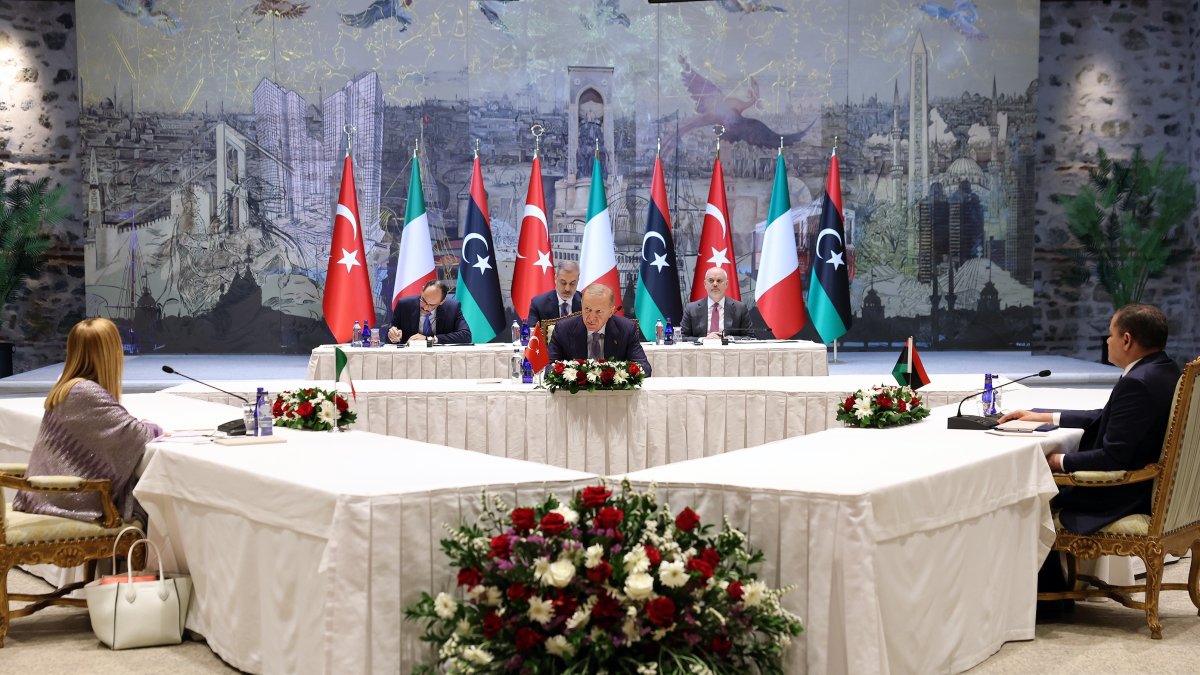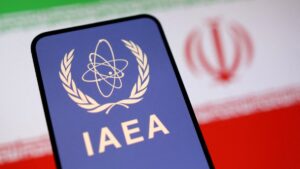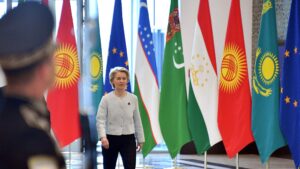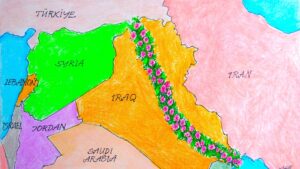Maintaining awareness of the world’s present agenda is exceedingly challenging. Several events are unfolding rapidly on multiple fronts, both in the Middle East and globally. Within this agenda, the weakened influence of Russia in the Middle East and the Eastern Mediterranean as a result of the Russia-Ukraine war and its diminished presence in Syria following the revolution on Dec. 8, as well as Israel’s ongoing genocide in Gaza over the past two years, have assumed a central position in considerations of new balances in the Eastern Mediterranean.
Furthermore, the security challenges currently confronting Europe, along with the reality that European actors, such as France, are experiencing a progressive decline in influence in the Eastern Mediterranean, Africa and the Middle East, suggest that new actors and dynamics may emerge in the Eastern Mediterranean.
Great rivalry in the East Med
Libya is, of course, the epicenter of developments in the Eastern Mediterranean. In recent months, the agenda has been quite intense in the country, where stability has not yet been fully achieved in the post-Gadhafi era, and international initiatives have failed to produce a comprehensive solution. Situated at a critical location in the Eastern Mediterranean and considered the gateway to Africa, Libya is no longer solely concerned with its internal dynamics. It has also become instrumental in shaping the new commercial, political and military balances in the region.
This was demonstrated by the Istanbul meeting between Türkiye, Libya and Italy at the beginning of August. The meeting between President Recep Tayyip Erdoğan, Libyan Prime Minister Abdulhamid Dbeibah and Italian Prime Minister Giorgia Meloni went beyond typical diplomatic protocol. It addressed a variety of topics, including energy and economic issues, regional concerns and irregular immigration. The meeting, which took place in the aftermath of the recent escalation of tensions between Libya and Greece, was also noteworthy from an Eastern Mediterranean perspective.
Greece initiated its pursuit of combative policies in the Eastern Mediterranean with the signing of the maritime jurisdiction agreement between Türkiye and Libya in 2019. Its maximalist claims began to jeopardize the national interests of neighboring countries in the Eastern Mediterranean.
Athens, which has been unable to secure the support it desires from European actors and NATO allies that have been significantly weakened by the Russia-Ukraine conflict, is also quite uncomfortable with the advancing cooperation between Türkiye, Libya and Italy.
Italy has maintained its historical perspective of the Mediterranean as the internal sea of ancient Rome, despite its occupation of Libya ending at the beginning of the 20th century. Libya remains significant to Italy.
France and Germany, which have previously supported Greece’s unilateral plans in the Eastern Mediterranean, appear to have reevaluated their priorities in the wake of the Russia-Ukraine conflict. This has created a new opportunity for Italy in the Eastern Mediterranean. Rather than pursuing the conventional unilateral policy of supporting Greece, Rome aims to develop cooperation with Türkiye, which it apparently perceives as a key actor in the new era, by participating in the recent Istanbul meeting. To have a voice in the Eastern Mediterranean, address the issue of illegal immigration, and participate in future energy projects, Italy is seeking to strengthen its relationships with Türkiye and Libya, at a time when Europe is unable to implement a unified Eastern Mediterranean policy.
Despite Italy not having officially recognized the agreement between Ankara and Tripoli, it appears to have accepted the new equation, as it has also concluded distinct agreements with Algeria and Tunisia.
Search for a new equation
The unilateral and unlawful actions of Greece, such as the recently published Maritime Spatial Planning map, constitute the theft of thousands of square kilometers of maritime territory from Türkiye, Libya and Egypt. After the Türkiye-Libya agreement was signed in 2019, Greece signed a similar agreement with Egypt in 2020 and continues to advocate for actions that are unacceptable to numerous countries bordering the Eastern Mediterranean, including Cairo. One of the most recent events regarding the issue, in which Egypt rejected Greece’s so-called maritime spatial planning and delivered a diplomatic note, just took place a few days ago.
Countries in the region, such as Egypt, which signed the agreement with Greece under U.S. pressure following the Türkiye-Libya deal in 2019, are currently seeking a new and equitable process based on the principle of fair sharing. In this regard, the recent summit in Istanbul and the anticipated process between Türkiye, Italy, and Libya could potentially be expanded to encompass other Eastern Mediterranean countries.
In the current situation, where Europe must act promptly to establish a new security architecture, Türkiye’s significance, the complex relationships that eastern Libya still maintains with Russia, Ankara’s influence in both western and eastern Libya and Europe’s waning support for Greece may lead to a decrease in the intensity of Europe’s backing of Greece.
In this context, Türkiye’s likely role in the global system in the new era, the improving relations between Ankara and Washington and Europeans’ reluctance to antagonize Türkiye could all contribute to Ankara becoming a key participant in a process that would be mutually beneficial in the Eastern Mediterranean.




















































Be First to Comment